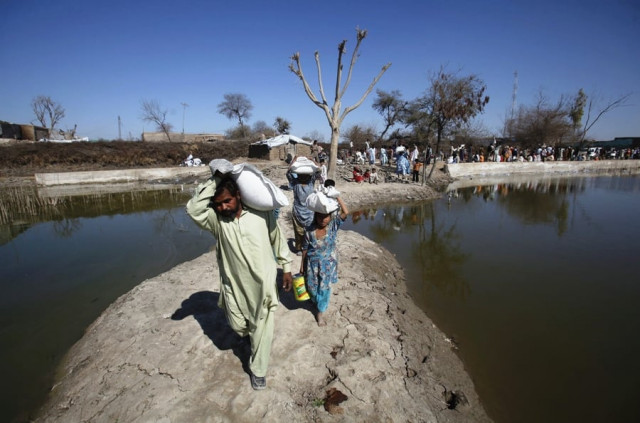Badin under water
Relief camps, around 240 of them, have now been established to house the over 60,000 people displaced from Badin.

This is all very well. It is good news that measures are being taken to offer much needed aid to people. But it is unfortunate that this effort has come rather late in the day. At an emergency meeting to discuss the rain situation, the Sindh chief minister blamed district authorities for failing to do enough. He also called for better coordination and improved management to offer relief to people. Funds and instructions have now gone out to DCOs for this purpose.
It must, however, be said that these steps should in an ideal situation have been taken earlier. The main aim must be to prevent suffering caused by disaster rather than to pick up the pieces after the problem has occurred. The monsoon rains are hardly an unexpected event. They take place each year and modern weather forecasting makes it possible to predict when and how much rain will fall. Surely this ability should be used to plan evacuations, the immediate setting up of relieve centres and the provision of food supplies chalked out in advance, especially more so given the devastation of last year’s flood, the worst this country has ever experienced. It should also be possible to organise how different departments will work together and what they are expected to do as soon as the first signs of a possible calamity come in. Clearly, we have a lot to learn.
Published in The Express Tribune, August 19th, 2011.



















COMMENTS
Comments are moderated and generally will be posted if they are on-topic and not abusive.
For more information, please see our Comments FAQ